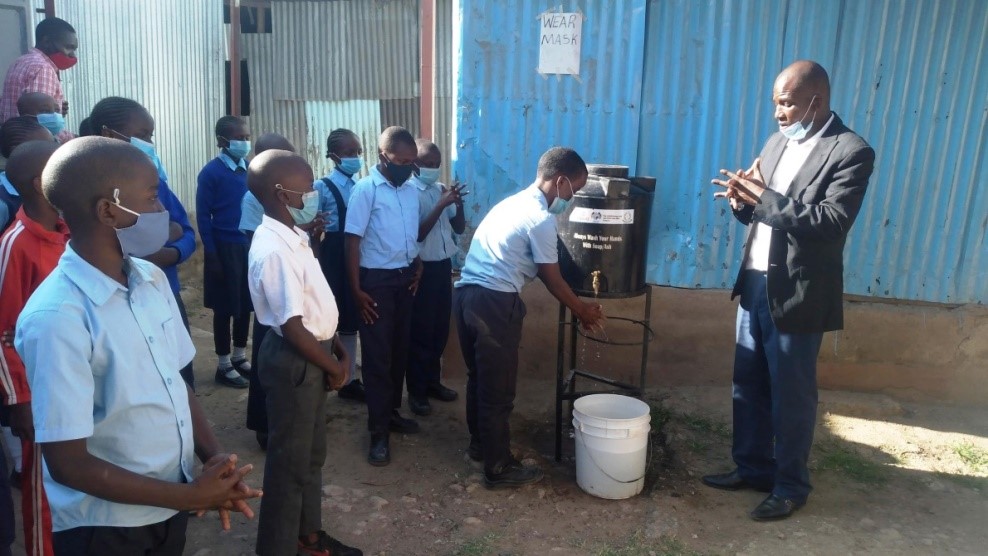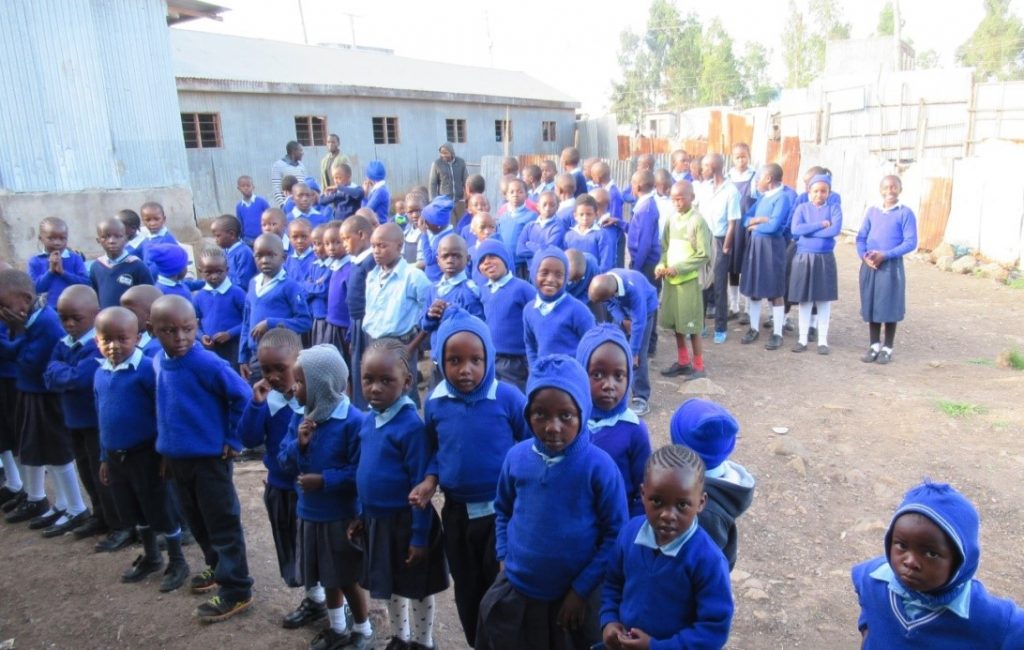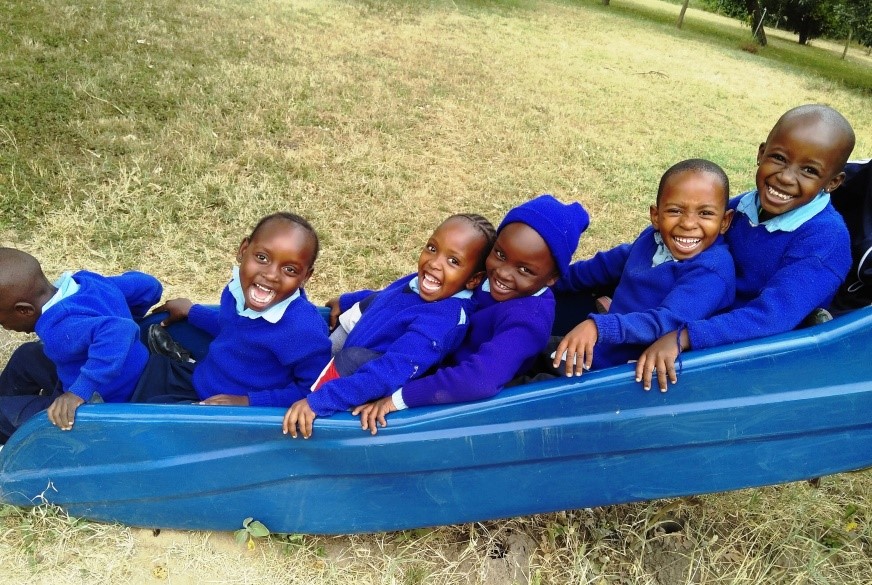Slum school’s hope despite COVID-19 avalanche
Every morning as he rushes to work, alighting from a matatu or sometimes from a boda boda (motorcycle taxi), Eric Omondi is thinking, planning and debating on how to meet the myriad of challenges facing the people under his charge.

At the Mwangaza Tumaini Learning Centre in Mukuru Kwa Njenga slums, the challenge is more than just COVID-19. They are vast and include keeping the children safe from the tentacles of drugs, alcohol and prostitution. They involve trying to offset the impact of poverty and in some instances broken, often violent homes.
“My job as the head teacher of Mwangaza involves finding solutions to problems that have only been worsened by the novel Corona virus,” Omondi says. “The children under my care are actually safer in school than they are at home. With Corona and many parents now jobless, they look to the school to provide food and refuge from dangers that lurk in informal settlements.”
The Centre is a mission school that depends on the donations of benevolent Christians to run. The donors are predominantly American. As global news indicate, Americans have been hit hard by Corona virus. Resultantly, the money from the USA had reduced to a trickle by the time the Kenya government ordered the closure of schools in March 2020. The staff at Mwangaza were sent home on an indefinite unpaid leave.
So when schools reopened in the first week of 2021, parents were expected to foot the bill to run the school. Unfortunately, as Omondi puts it, “Many of our parents have no income and the few that do depend on casual jobs and daily wages. With the COVID-19 pandemic, nearly all have lost their livelihoods.” The school therefore is in dire straits.
COVID-19 has inadvertently aggravated the situation for the Centre. Mwangaza normally provides lunch for the children, many of whom come from homes where breakfast is a pie-in-the-sky. With the current financial constraints, this has become increasingly difficult. The additional demands of COVID-19 infection prevention is to provide hand-washing facilities for the children yet piped water in Mukuru Kwa Njenga slums is just that – a pipedream.
“Here households buy water per jerry-can,” Omondi explains. “You can imagine what it means to afford hand-washing water and soap and at the same time provide the children with lunch and mid-morning porridge. Yet we have no money coming in. The miracle is that we’re running on empty.”
Although the Nairobi Metropolitan Services occasionally brings them water, they have had to look for solutions internally.
One way has been by installing large water tanks to trap rain water. Although rain is scarce in January, they believe the tanks give them a buffer.
Was the school opening a good idea or should the government have let the children stay home until the COVID storm had blown over? “Everything considered, the children should be in school. They stayed outside for too long. With parents distressed economically and probably absent from home, they have acquired some bad habits. Their language and behaviour is rough, and that is putting it mildly. We have quite some work on our hands just getting them back to where they used to be.”

Was the school opening a good idea or should the government have let the children stay home until the COVID storm had blown over? “Everything considered, the children should be in school. They stayed outside for too long. With parents distressed economically and probably absent from home, they have acquired some bad habits. Their language and behaviour is rough, and that is putting it mildly. We have quite some work on our hands just getting them back to where they used to be.”
Mwangaza Tumaini has also lost a significant number of teachers. To replace them, they do interviews then disclose their humble status to those who have passed. “That means,” Omondi explains, “asking if they are willing to wait for an indefinite period for their salaries. Those willing to work within these challenging parameters would be the ones we take.”
Besides teachers, a good number of children have also left after their parents relocated with them to the countryside. “Their caretakers lost their livelihoods in Nairobi and so they left the city,” he says.
Before the COVID-19 pandemic, Mwangaza Tumaini Learning Centre had 322 pupils. That number has dropped drastically. However, Omondi is optimistic that as the economy opens up, things are likely to change for the better.
Although a number of the children exhibit deterioration in manners and discipline, Omondi is positively amazed that there have been no reports of abuse at home. “Considering that we’re slum-based, it’s dumbfounding that we’ve not heard of cases of child abuse at home during the long holiday. In the past, this was a given. I believe the Nyumba Kumi initiative has strongly intervened in the communities and stopped or minimised child abuses.”

Another silver lining is that behaviour can be modified. Though some of the little lambs have strayed during the long recess from school, Omondi believes the teaching staff will successfully shepherd them back to the straight and narrow path.
Our Services
View our Centre for Behaviour Change and Communication Services.













